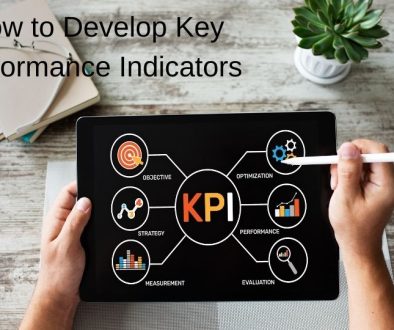Undertaking succession planning is in the interests of individuals who would like promotion or are involved in running a team or business. The business you work in no matter what is does, is the sum of its employees. The employees make the decisions – from the day to day to the strategic – and they deliver the work or product to your customers.
If you work at any level within a business, succession planning should be on your “To Do” list. Let’s look at four reasons why:
- Win your promotion more easily with succession planning
- Succession planning improves business’ resilience and performance
- Create a more valuable business
- Succession planning allows you to retire and keep earning from your business
Firstly, lets cover what succession planning is.
Watch on YouTube
Listen on Podcast
What is succession Planning
Just in case you aren’t sure, succession planning is a planning activity to identify and develop leaders, manages and key employees to
- support career progression within a business and
- to quickly fill gaps left by employee’s departing the business and
- to develop the next set of managers and leaders within the business
If the management team or business allows big skills gaps to develop between the employees in key positions and their next best person, then the business could find themselves with significant problems on their hands when a key person leaves.
Allowing a key role to be vacant for a period of time can be costly to a business: growth can slow, customers can leave, other team members become over-stretched and increased levels of mistake can develop.
Recruiting and training external individuals takes time and is a distraction – both impact business performance.
Succession planning overcomes these challenges and creates great benefits to the business.
Four great reasons to put succession planning in place
1. Succession planning helps win your promotion
Anyone who has been looking to get a promotion will have come against the challenge of “Who is going to do your work if I promote you?” or words to that effect. If you don’t have a good solution in place, your promotion can stay off the table.
If you want promotion, then provide credible solutions to your manager for who is going to do your role when you are promoted. Hiring externally is an option, though if this is your only option, don’t count on that promotion just yet.
By developing a credible succession plan AND putting in the investment to make that plan happen, you are demonstrating:
- your commitment to putting the business’ and teams’ interests before (or alongside) your own
- you won’t create a problem for your manager (when you move)
- you are a good team player who thinks of others
- good management practice
It does take confidence in the value you create within the business to invest in succession planning.
Many employees fear that putting good succession solutions in place means their job is less secure as their employer has a ready replacement for them. This will be a risk. I would argue that this risk is easily outweighed by the opportunity of getting promoted. And in my experience, business never want to lose good and skilled staff members that look out for the interests of the business.
My final thought for you: If you are worth promoting, you are worth keeping in the business! So don’t fear making it easy to promote you.
2. Succession planning improves business’ resilience and performance
A business, and the managers within the business, should not expect an employee to stay in the same role for years and years. Therefore employees will either move to another role within the business or move to another business.
When this happens, the disruption can be minor through to major depending on how dependant the business is on the role in question AND what the business has done to plan for this eventuality.
Good practice would be to get in place a plan of what would happen if a person in the team were to leave. A useful place to start a succession plan is to answer these questions:
- Which individuals can move into this critical position now, in a year, in two years?
- What training and experience do I need to provide to individuals who are not ready now, but have the potential to be within the next year or two?
- How can I build this training into the individual’s day job and make it happen?
- For those that are ready now, what can I do to keep them engaged and staying with the team?
- If I have to recruit externally (Plan B), then how would I do this and what timeframe would be realistic?
And now repeat these steps for the vacant position this move will create and so on
Benefits of having good succession planning in place throughout the business:
- Businesses with active succession planning are usually more attractive to potential employees. It is easier to recruit and you get better employees.
- Less disruption is experienced with a plan, as you don’t have to create a solution before putting it in place.
- A quicker solution as you have one or more people within the organisation that can move into the role, rather than having the delays of recruiting externally and then training new joiners.
- Better employee retention as development of individuals is a key focus for the business
These alone usually offer a huge return on any investment you might make as a business to set a succession planning programme up.
3. A business less dependent on the owner is more valuable
Business continuity, repeatability and strength make a business more valuable. This is common sense and borne out in business valuations achieved. Ask any M&A broker or specialist.
The ability of the management team is a critical part of the valuation of a business. This team makes the key decisions and is tasked with running and growing the business. If you were not in this team day to day, would the business performance change?
If you are a business owner looking to sell your business, then your succession planning will impact the sale price you can achieve for your business.
Imagine, these two scenarios below:
Scenario 1
The business owner works daily in the business and remains the key client contact for the top accounts. This owner makes all the key decisions in the business. The company has turnover of £20m and a profit of £1.2m each year.
Scenario 2
The business owner is an involved investor, leaving the day to day running of the business to his management team. This owner holds the position of chairman and only gets involved in key strategic decisions for the business. The company has turnover of £20m and a profit of £1m each year. (Lower profit because of extra management team cost).
Which business is more valuable to a purchaser?
In nearly every case, the business in scenario two will be more valuable, and probably by some margin.
Plus, I would argue that the owner of Scenarios 2, has the potential for more time for other things and less stress day to day. Negotiating a sale in which you leave the business much earlier, with more of the sale price paid earlier, rather than having a longer earn out period, is also a lot more likely.
[Note – trade buyers of a business may not need the current management team, but financial buyers definitely will. Why reduce your options? Less competition at sale, usually means a lower sale price.]
4. Succession planning allows you to retire and keep earning from your business
Investing in developing good managers and leaders within your business to take over from you when you retire can leave you with a lot more options. You can sell your business for a higher price as discussed above or you could keep your business and earn dividends from it.
For example, you could move into a chairman role. This allows you to participate in board meetings and the key decisions of the business but avoid the day to day running of the business. Or you could step entirely away from the business and become an interested investor, tracking the financial performance, and holding the management team to account.
Both options and others are possible when you have a team in place that can continue running and growing the business. It goes without saying that you will need
- to be confident in their ability to run the business and make good decisions and
- trust their integrity.
If you are not happy to let go and step away from the business, you may not have done enough work to develop your team or get the right people in the right positions.
In summary
Planning and developing one or more options for replacing you in your current role is absolutely in your interests if you:
- want to get promoted or move to a different role
- plan to sell your business or make your business more valuable to a buyer
- want to develop your options as a business owner
I would argue that succession planning and investing in making that plan a reality is one of the best investments that you can make.






